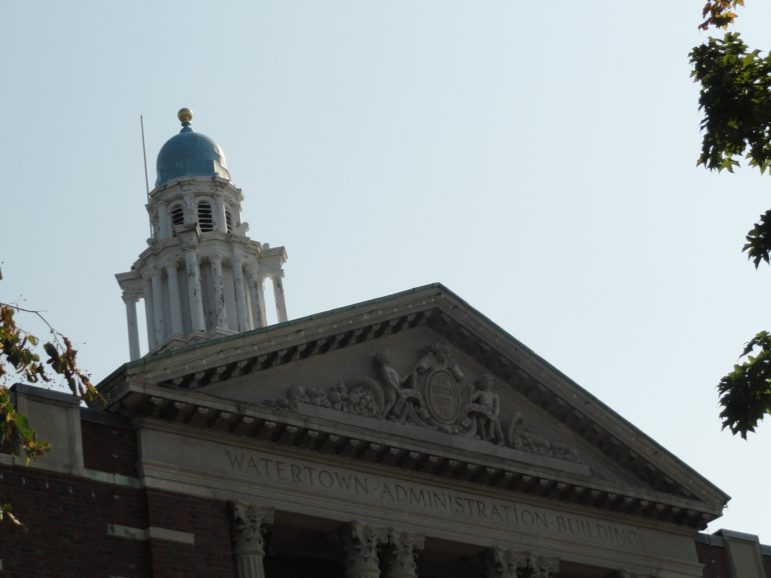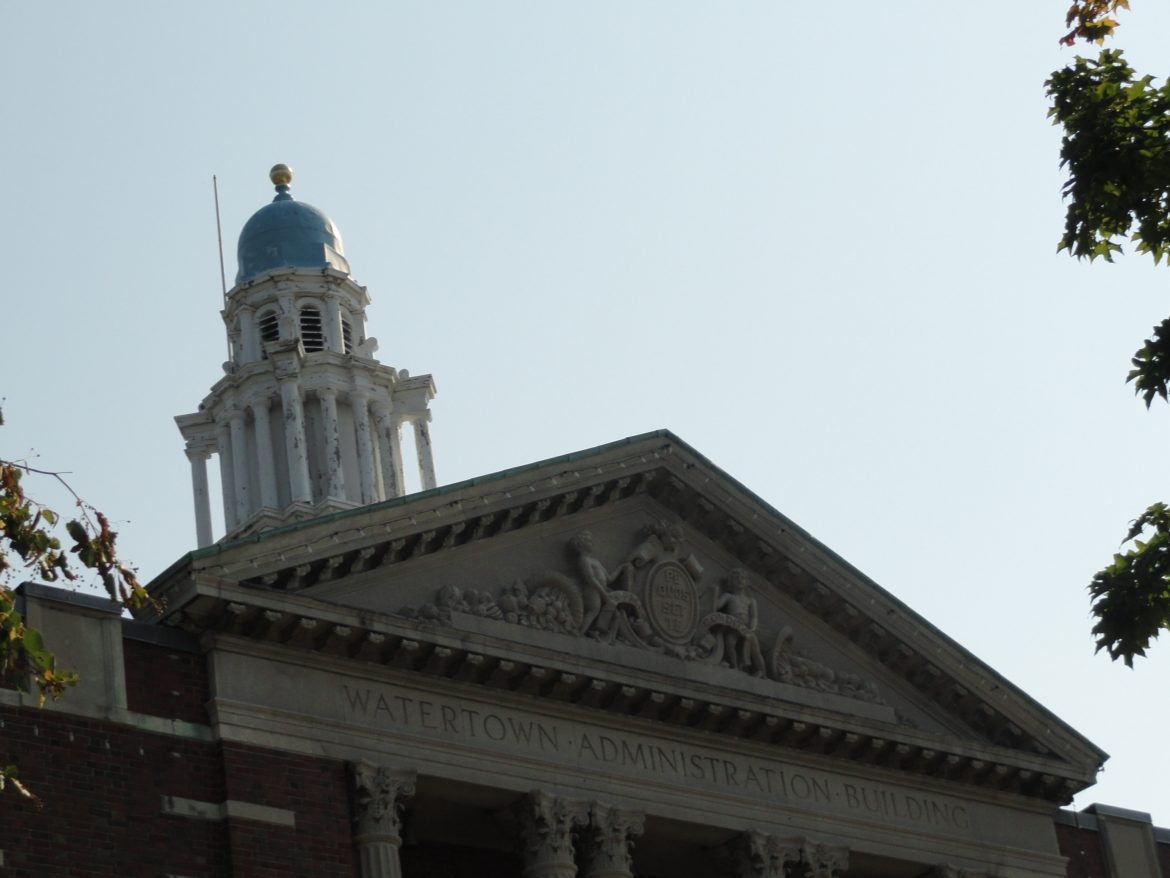
In a normal year, Watertown officials would be starting the Town Budget process now, but after “all hell broke loose” with the Coronavirus, the Town Council voted to delay the process until they can get an idea of how much money will be coming from the state and other sources, such as local meals and hotel taxes.
On March 10, when the Town Council last met, they voted to give Town officials two extra weeks to submit the budget, moving the date back to April 28. Town Council President Mark Sideris said the world changed quickly after that.
“As soon as we made that vote, for lack of a better word, all hell broke loose,” Sideris said before asking the Town Council to further delay in the submission of the budget. The Council unanimously voted to move the submission of the budget to a date to be determined. It could be weeks before some key budget details become clear.
Tuesday night, Town Manager Michael Driscoll updated the Town Council on the budget, saying it remains very much in limbo, adding that 27 million of the $156.7 million projected FY21 budget (about 17 percent) “remains very much up in the air.”
“The FY21 budget, I think if there was one word describe where we are at, is uncertain,” Driscoll said.
One of the biggest unknowns in the budget is the amount of state aid that Watertown will be receiving. In Fiscal Year 2020, the current year, the Town received $13.2 million, When Gov. Charlie Baker submitted his budget on January, before the COVID-19 outbreak in Massachusetts, he included $13.6 million for the town. State aid makes up about 9 percent of the Town’s budget, Driscoll said.
On April 10, however, Driscoll received a message from State Sen. Brownsberger saying that the state budget process will have to start again to take into account the impacts of the Coronavirus on the state’s economy.
“With the economy in free fall, state revenues are in free fall. Normally by now, both the House and the Senate would be well along in developing proposed budgets,” Brownsberger wrote. “We have had to restart the budget from the beginning. It will be weeks before we can tell municipalities how much they can plan on in state aid or begin to shape plans for state programs.”
Driscoll commended Sen. Brownsberger, as well as State Reps. Jonathan Hecht and John Lawn for their efforts to help the town, but added help will be needed from other sources.
“The Commonwealth very much understands the plight the Town is in, but the Commonwealth cannot print money,” Driscoll said. “We will need the Federal Government to provide support to all the states in our country. So as we move forward, we all move froward together.”
Town Councilor John Gannon noted that the Federal CARES Act includes $2.5 billion for Massachusetts to help local governments. Driscoll said he has not heard how Watertown will benefit from those dollars, and how they can be spent.
Town Revenues
The Town’s revenues will be down, too, Driscoll anticipates. He said that he expects the amount brought in by local meals and hotel taxes to drop by $170,000 each, or nearly $350,000. Also, local motor vehicle excise taxes will likely be down, “if not in 2021, in 2022,” Driscoll said.
Driscoll said some department budgets could be impacted by the shortfall, and noted that the Town had planned to give the Watertown Public Schools a 5 percent increase, double what most departments receive. He emphasized, however, that the Council’s budget policy guidelines for the school budget increase states that the 5 percent increase is “subject to validation of revenue and expenditure assumptions in the October 8, 2019 Preliminary Budget Overview.”
One of the biggest additions to the budget in recent years has been the “new growth,” which includes new building projects and renovations. Those increase the amount of property taxes coming in. The preliminary budget presented in the fall forecasted $3.6 million in new growth, but Driscoll said he expects that number to be down.
“A lot of that is related to the timing of construction, which remains to be seen,” Driscoll said.
The town will be able to recover some money that had been budgeted for the Snow and Ice removal fund, about $85,000. This money will be used for COVID-19 supplies and contracted services related to the outbreak, Driscoll. said.
Currently, the Town has budgeted money to pay down the deficit for Town employee’s retirement benefits ($14.6 million), the deficit for other post employment benefits (OBEB) ($4.2 million), and debt services for the reconstruction Watertown’s three elementary schools ($4.6 million). Driscoll said the Council has indicated that it is committed to paying down the retirement benefit, which will be the final year of paying off the deficit.
Some of those items could be adjusted, including borrowing more money for the elementary school projects.
“We have the flexibility if want to increase the retirement appropriation, decrease the OPEB appropriation or actually increase the monies for our elementary school debt service, we have the ability to do that,” Driscoll said.
